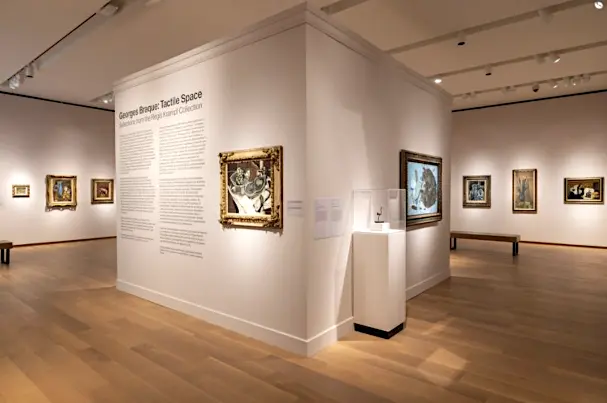By Justin E. Crisp
Like many of you, my family and I are just returning from summer vacation. Rested and relaxed by my time away from work, I am reminded of an essay written in 1930 by the famous economist John Meynard Keynes, entitled “Economic Possibilities for Our Grandchildren.”
In this short piece, Keynes, arguably the most influential economist of the post-war period, tried tell the future. He forecast that by 2030, we would have advanced so far technologically and, by the miracle of compound interest, would have generated so much wealth, that we would only have to work fifteen hours a week (if that). That’s 3 hours a day! This prospect concerned Keynes. “For the first time since his creation,” he wrote, “man will be faced with his real, his permanent problem—how to use his freedom from pressing economic cares, how to occupy the leisure, which science and compound interest will have won for him.” Keynes worried, in other words, that we would go crazy from having so much time to relax.
We are less than 6 years from 2030 and Keynes’s prophesied 15-hour work week, so let me ask you: how’s all that spare time been treating you?
Keynes’s forecast was very clearly wrong—though not because he overestimated our potential economic growth. Real GDP per capita has increased pretty much on par with his predictions. There are other economic reasons why that growth hasn’t translated into a 15-hour work week, but I want to reflect today on another factor, a cultural and philosophical one. Keynes, I think, underestimated just how human it is to work, as well as the promises and perils of that fact of human nature.
The gospels of Mark and Matthew recall a particular debate Jesus had with some Pharisees, members of a prominent sect in the Judaism of Jesus’ day. The Pharisees sought to re-focus Judaism around the study of and obedience to the ritual law. As Jews, Jesus and his disciples followed the practices of the law too, but Jesus had a different attitude toward the law that often brought him into conflict with the Pharisees. The Pharisees had a “fake it ‘till you make it” attitude toward religious practice. They thought that performing the works of the law could transform you from the outside in. Observing these traditions, acting holy, would make you holy. Jesus seems to have had the opposite opinion. He accused the Pharisees of being people who “[honor God] with their lips, but their hearts are far from [God]” (Mark 7:6). For Jesus, it’s the heart that’s important, not the lips—the inner disposition, not the outer action or appearance. He continued, “There is nothing outside a person that by going in can defile, but the things that come out [from within] are what defile. For it is from within, from the human heart that evil intentions come.” For Jesus, what matters is if your heart’s in the right place.
The Pharisees thought that what you do makes you who you are, but Jesus thought that who you are is expressed through what you do, and it’s really who you are that counts. This is Jesus’ version of the Apostle Paul’s great teaching that we are saved by grace and not by good works. We are saved because of who we are, and whose we are, not because of what we do.
I think that many of us in contemporary America have an attitude toward our jobs similar to the Pharisees’ attitude toward their religious practices. We think that our work will save us, because we think that our work makes us who we are. The truth is, jobs are a thing we do—they are not who we are.
I think jobs are great. (I love my job!) I think that work is, as I said before, a deeply human thing. I believe we are made by God to work. This is one of the lessons of the second creation story in Genesis, which says that God put Adam in the garden “to till it and keep it” (Genesis 2:15)—to make something of the garden. Work is, at its best, a way to make things. But work does not make us. Work can be a way we manifest who we are, our aspirations and values (or at least they can be economic means to pursuing those ends in other parts of our lives). Work can express who we are, but work does not make us who we are. Work makes us who we are no more than the Pharisees’ religious practices made them who they were.
The good news is that who you are isn’t something you have to worry about. Who you are is a beloved child of God, a forgiven sinner, redeemed and saved by God in Jesus Christ, in whom we have been given new hearts, hearts of flesh rather than stone (Ezekiel 36:26). That’s part of Jesus’ concern with the Pharisees, I think: thinking our standing before God or before others depends on our performance is a recipe for anxiety of an unbelievable kind. It’s a recipe for never thinking you’re enough, because there’s always one more thing to do. It’s a recipe for not taking your annual vacation, or for sacrificing family time a little more often than you’d like to. It’s a recipe for burn out.
The truth is, our standing before God doesn’t depend on job performance of any kind, spiritual or professional. It’s based not on what we do but on what God’s done for us. We can all better honor this by doing more regularly as millions of Americans did earlier this week. We can take a day off.
The Reverend Dr. Justin E. Crisp is a husband, dog dad, music lover, and priest. He serves as the priest in charge of St. Barnabas Episcopal Church and lives with his wife, Jewelle, and their pug, Val, on the St. Barnabas hilltop in backcountry. He also teaches Anglican history and theology at Berkeley Divinity School at Yale.




